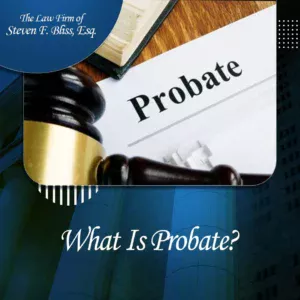Probate in California is the court-supervised legal process that occurs after someone passes away, ensuring that debts are paid and assets are distributed to heirs according to a valid will or state intestacy laws. Governed by the California Probate Code, probate provides oversight to confirm the authenticity of a will, appoint an executor or administrator, and settle the estate in an orderly manner. While probate serves an important purpose, it is often seen as lengthy, expensive, and public, making it a key consideration in estate planning.
 The process begins with filing a petition in the superior court of the county where the decedent lived. If there is a will, the court validates it and appoints the named executor. If no will exists, the court appoints an administrator under intestate succession rules. The executor or administrator is responsible for managing the estate, gathering assets, paying debts, and eventually distributing property to the rightful beneficiaries.
The process begins with filing a petition in the superior court of the county where the decedent lived. If there is a will, the court validates it and appoints the named executor. If no will exists, the court appoints an administrator under intestate succession rules. The executor or administrator is responsible for managing the estate, gathering assets, paying debts, and eventually distributing property to the rightful beneficiaries.
California probate can be time-consuming. On average, the process lasts nine months to over a year, depending on the size and complexity of the estate. Larger estates with contested wills, tax issues, or creditor disputes may take significantly longer. During this time, beneficiaries often must wait for distributions, which can create financial strain if assets are tied up in probate proceedings.
Costs are another factor. California law allows statutory probate fees for attorneys and executors based on the gross value of the estate. For example, an estate valued at $500,000 can generate fees exceeding $13,000, not including court costs, appraisals, and other administrative expenses. These fees are calculated on total estate value, not net equity, meaning debts like mortgages do not reduce the fee base. This makes probate particularly costly in California, where real estate values are high.
| Probate Element | What It Involves | California Impact |
|---|---|---|
| Court Filing | Petition to start probate | Filed in county superior court |
| Executor Appointment | Court confirms executor/administrator | Must notify heirs and creditors |
| Asset Management | Collecting, inventorying, and valuing assets | Court-supervised inventory required |
| Debt & Tax Payment | Settling claims before distribution | Includes federal taxes and creditor deadlines |
| Final Distribution | Assets transferred to beneficiaries | Requires court approval of accounting |
While probate has challenges, it also offers protections. The process ensures that creditors are given a fair chance to make claims, beneficiaries receive notice, and disputes over the will are resolved under court supervision. This structure prevents fraud and promotes fairness in distributing the estate. For some families, this oversight can provide reassurance that everything is handled properly.
In conclusion, probate in California is the formal legal process of validating wills, paying debts, and distributing assets, but it is often lengthy, costly, and public. For these reasons, many Californians turn to living trusts and other estate planning tools to avoid probate whenever possible. However, when probate is necessary, understanding the process, its requirements, and its implications helps families prepare and manage expectations during a difficult time.






